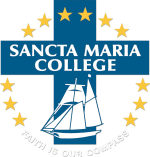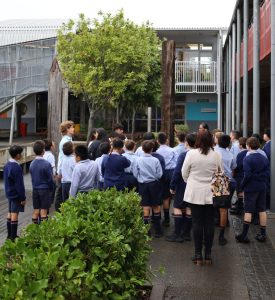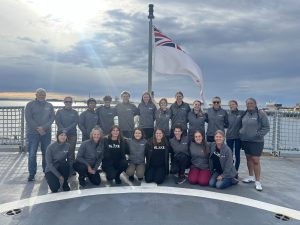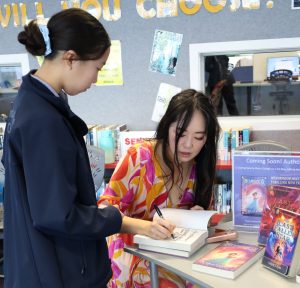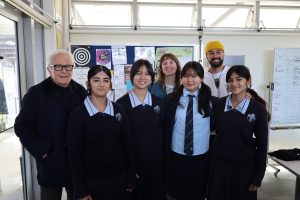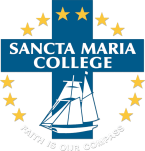Over the July holidays, Sophia Bebelman, along with three other students represented New Zealand at the Biology Olympiad against 70 other countries or 280 other students. The New Zealand team came back with two silvers, a bronze medal won by Sophia, and a highly commended.
Sophia had sat an entrance exam in Year 11, attended a tutorial program over the summer holidays, sat another exam at the start of this year and went to a practical training camp with 24 others doing mainly laboratory work. The training was incredibly competitive with intense teaching. There was clearly a lot of hard work and preparation before she could make it into the New Zealand Team.
Sophia says she entered into this competition because she just likes biology. It was as simple as that. She explained that the school curriculum only focuses on certain aspects of the subject but with this she was able to explore all the nooks and crannies of biology. Her passion for the study of living organisms led her to Hungary where she was rewarded with a bronze medal.
Her favourite part of the one-week programme was being able to meet so many people. The best way to make friends is to find a common interest, so imagine being with 280 other people your age who all love biology just like you. She also enjoyed the sight seeing and other events prepared as part of the Olympiad. No matter the reward, the experience made it all worth it, having been able to visit Budapest, amazing churches, historic buildings and even Slovakia.
The timetable was intense, with little time left to revise. It was sight-seeing by day and studying by night. The exams they were there for were held across two days, but to ensure it was of the right level of difficulty, they trialed it on university students studying in the same field. But even knowing this, Sophia says it was interesting to do work harder than what is given at school.
A biology competition between Czechoslovakia and Poland from 1985 to 1989 was the forerunner of the future International Biology Olympiad. The positive experience from the International Olympiads in other natural sciences and mathematics prompted the idea of an International Biology Olympiad, for which UNESCO asked Czechoslovakia to take the initiative.
Six countries (Belgium, Bulgaria, Czechoslovakia, the German Democratic Republic, Poland and the Soviet Union) founded the IBO Competition in 1989 (Prague and Brno), and held the first competition in Olomouc in July 1990.
Notwithstanding some initial difficulties, this Olympiad was a great success. More countries joined quickly in the following years and the number of participating countries still increases steadily. Soon after the first IBO, a Coordinating Center was established in Prague to function as the administrative headquarters of the IBO. In 2017, the IBO became an officially registered association with its seat in Kiel, Germany.
Jennifer Joseph
